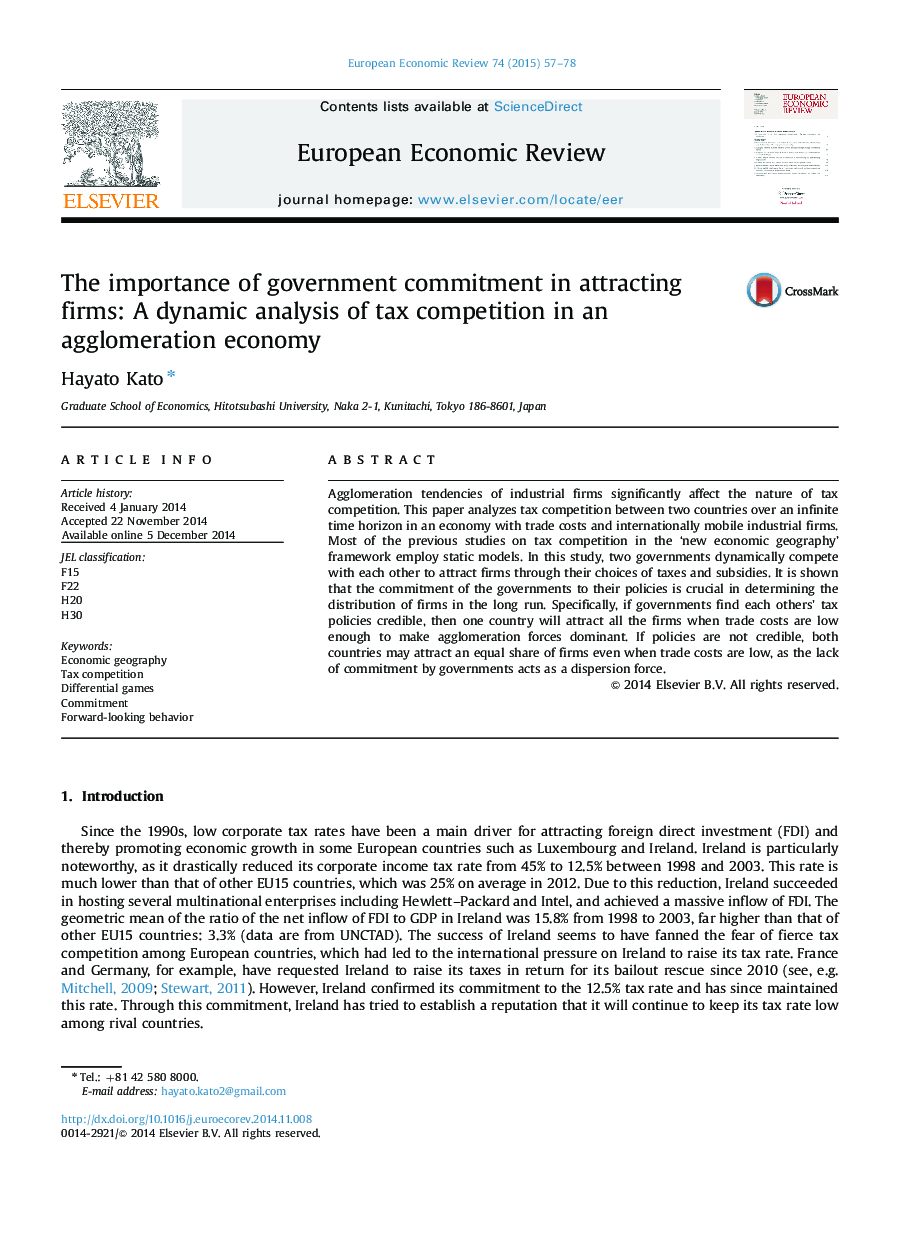| Article ID | Journal | Published Year | Pages | File Type |
|---|---|---|---|---|
| 5066650 | European Economic Review | 2015 | 22 Pages |
Abstract
Agglomeration tendencies of industrial firms significantly affect the nature of tax competition. This paper analyzes tax competition between two countries over an infinite time horizon in an economy with trade costs and internationally mobile industrial firms. Most of the previous studies on tax competition in the 'new economic geography' framework employ static models. In this study, two governments dynamically compete with each other to attract firms through their choices of taxes and subsidies. It is shown that the commitment of the governments to their policies is crucial in determining the distribution of firms in the long run. Specifically, if governments find each others׳ tax policies credible, then one country will attract all the firms when trade costs are low enough to make agglomeration forces dominant. If policies are not credible, both countries may attract an equal share of firms even when trade costs are low, as the lack of commitment by governments acts as a dispersion force.
Related Topics
Social Sciences and Humanities
Economics, Econometrics and Finance
Economics and Econometrics
Authors
Hayato Kato,
